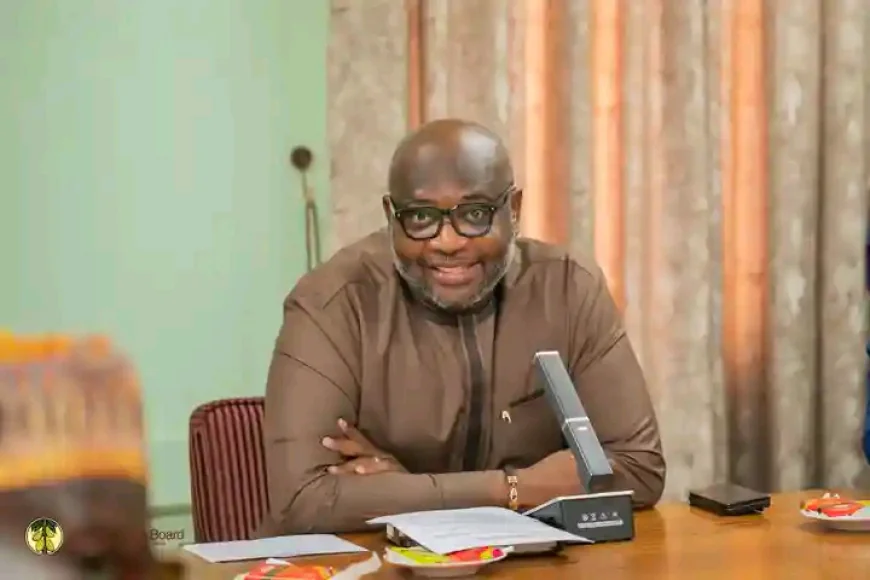$48M Jute Sack Scandal Deepens Cocobod's Crisis — Acting CEO Blasts Reckless Procurement
Dr. Randy Abbey says Board owes over $400M to agrochemical suppliers and faces GHS 33B in total debt

The Acting Chief Executive Officer of the Ghana Cocoa Board (Cocobod), Dr. Randy Abbey, has described the awarding of a $48 million jute sack contract in December 2024 as an act of sheer recklessness that has further plunged the institution into financial turmoil.
Appearing on an Accra-based media outlet Joy News’ PM Express Business Edition on Thursday, June 5, Dr. Abbey revealed troubling details about how Cocobod was run under the previous administration, describing a culture of financial mismanagement and wasteful procurement practices.
Dr. Abbey disclosed that the Board still had over 110,000 bales of jute sacks that had remained uncleared for more than three years, yet a fresh contract for 80,000 bales worth $48 million was awarded late last year.
“They issued an irrevocable letter of credit in December 2024 on our account at Ghana International Bank in London,” Abbey stated.
“Once the bill of ladings are presented… the $48 million will be given to the company. That is how this place was run.”
He expressed disbelief over the issuance of such a commitment in the face of clear evidence that Cocobod had no pressing need for additional jute sacks.

Painting a grim financial picture, Dr. Abbey revealed that Cocobod owes over $400 million to agrochemical suppliers, with its total debt nearing GHS 33 billion — a situation he says is now worsened by a flood of legal notices, court cases, and supplier demands.
“Every day, I’m dealing with solicitor letters or court issues. All those leaving my office when you came were companies we owe,” he told host George Wiafe.
He also disclosed that many of Cocobod’s contracts have gone unpaid for up to four years, with some even being signed as recently as January 2025, despite clear financial distress.
Clarifying confusion surrounding the GH¢21 billion Cocoa Roads project, Dr. Abbey explained that only $4.4 billion of that sum is included in the debt stock, representing certified work yet to be paid.
“The others have to do with contracts awarded but not yet executed or certified,” he clarified.
Cocobod is now undertaking a rationalisation exercise, assessing which contracts can be cancelled, transferred to the Ministry, or renegotiated.
Despite the dire situation, Dr. Abbey expressed cautious optimism, stating that Cocobod had begun redesigning its financial recovery plan, factoring in recent cedi appreciation.
“The projections we made were that by year four, we should be fine. But now we have to redo the books,” he said.
Still, he issued a sobering warning about Cocobod’s procurement culture, calling for urgent reforms.
“We had stock sitting idle, yet someone committed us to another $48 million. That’s how this place was run.”
With over $400 million in supplier debts, lawsuits piling up, and a $48 million procurement scandal unfolding, Cocobod's financial health appears more fragile than ever. As Dr. Abbey attempts to clean house and chart a recovery path, many are left wondering just how deep the rot goes — and whether accountability will follow.


